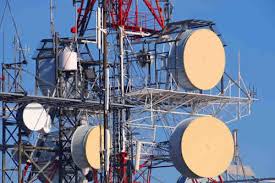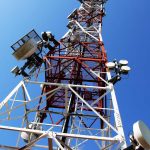Nigeria’s telecom operators have issued a stark warning over increasing acts of vandalism and theft targeting critical telecom infrastructure nationwide, saying the trend is fast eroding network quality, service stability, and the country’s digital progress.
Under the umbrella of the Association of Licensed Telecommunications Operators of Nigeria (ALTON), the operators said that between May and July 2025, they recorded numerous incidents of sabotage at telecom sites across Rivers, Ogun, Osun, Imo, Kogi, Ekiti, Lagos, and the Federal Capital Territory, among others.
“This is not just theft; this is sabotage of critical national infrastructure,” ALTON stated in a release signed by its Chairman, Engr. Gbenga Adebayo. Telecom assets, the group stressed, have been legally recognised as Critical National Infrastructure(CNI) under the Federal Government Gazette No. 133, Volume 108, issued on March 17, 2021.
According to ALTON, the rise in vandalism is coming at a time when telecom companies are making historic investments in expanding and modernising Nigeria’s digital infrastructure. The theft and destruction of key components—such as power cables, batteries, fiber optic cables, diesel generators, and solar panels—are disrupting connectivity, causing service blackouts and financial losses for operators.
“These components power our digital economy, financial systems, security communications, and emergency response services. Their loss is not just costly, it is dangerous,” the statement added.
The group revealed that stolen telecom equipment is now being sold illegally, with batteries and solar panels diverted for home and office inverter use, and diesel resold on the black market. ALTON warned that individuals who knowingly buy such stolen items are aiding crime and undermining national security.
Beyond theft, the telecom industry is also facing growing threats from road construction activities. Excavations along highways and urban centres are damaging underground fiber cables, compounding the problem of service disruption.
ALTON is now calling for urgent intervention by top security agencies, including the Office of the National Security Adviser (ONSA), the Inspector General of Police, the Department of State Services (DSS), and the Nigeria Security and Civil Defence Corps (NSCDC). The association is urging a coordinated national response to protect the country’s digital backbone.
“We need urgent, unified action. This is a matter of national security, economic stability, and the future of digital services in Nigeria,” Adebayo said.
The group also acknowledged the efforts of the Nigerian Communications Commission (NCC), which has launched a public reporting platform to tackle infrastructure vandalism. Citizens can report suspicious activity through [protect@ncc.gov.ng]or by calling 622.
The rising attacks on telecom facilities come despite the ongoing implementation of the Critical National Information Infrastructure (CNII) policy by the Federal Government. In August 2024, President Bola Tinubu signed a gazette officially criminalising the willful destruction of telecom infrastructure.
The Minister of Communications, Innovation and Digital Economy, Dr. Bosun Tijani, described the gazette — Designation and Protection of Critical National Information Infrastructure Order, 2024 — as a vital tool for protecting ICT investments. However, similar declarations made in the past, including one in 2020 by former President Muhammadu Buhari, have failed to stem the tide of vandalism.
Now, with telecom operators sounding the alarm, stakeholders are calling for immediate and decisive enforcement of existing laws to ensure the protection of assets essential to Nigeria’s digital economy and national development.










